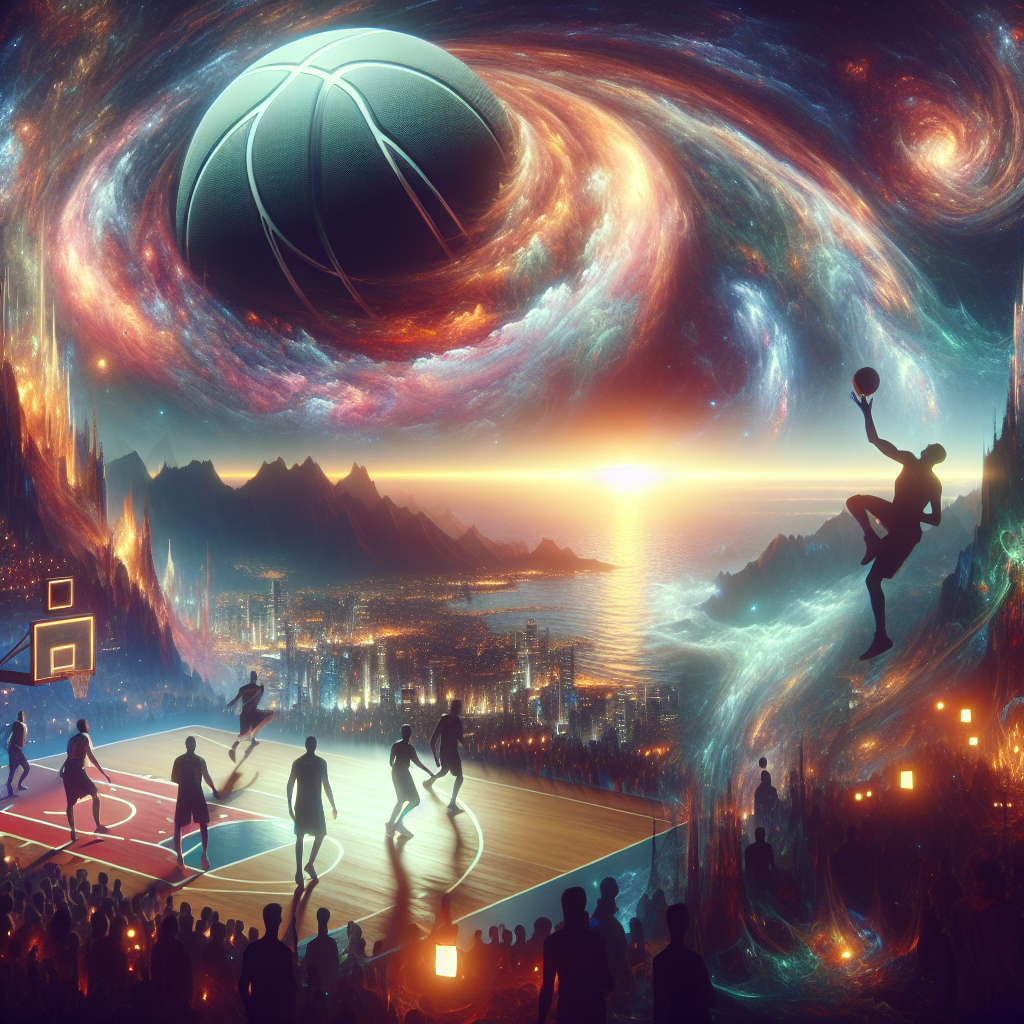Ime Udoka: Lakers are ‘not known for physicality or punking people’

Ime Udoka’s Perspective on the Lakers’ Physicality: Analyzing the Statement
Ime Udoka, the head coach of the Houston Rockets, recently made a statement that has sparked considerable discussion within the basketball community. He asserted that the Los Angeles Lakers are “not known for physicality or punking people.” This remark invites a deeper analysis of the Lakers’ playing style and the broader implications of such a characterization in the context of the NBA.
To begin with, it is essential to understand the context in which Udoka’s statement was made. The NBA is a league where physicality and mental toughness are often celebrated attributes. Teams that exhibit these qualities are frequently lauded for their ability to dominate opponents both physically and psychologically. Udoka’s comment suggests that the Lakers, despite their storied history and recent successes, do not fit this mold. This perspective warrants a closer examination of the Lakers’ current roster and playing style.
The Los Angeles Lakers, under the leadership of head coach Darvin Ham, have built a team that emphasizes skill, speed, and strategic play over sheer physical dominance. Players like LeBron James and Anthony Davis are known for their versatility and basketball IQ, rather than their propensity to engage in physical confrontations. This approach has yielded significant success, including an NBA Championship in 2020. However, it also means that the Lakers may not be perceived as a team that relies on physical intimidation to win games.
Transitioning to the broader implications of Udoka’s statement, it is important to consider how physicality is valued in the NBA. Teams like the Miami Heat and the Milwaukee Bucks have built reputations for their physical style of play. This approach can be particularly effective in the playoffs, where the intensity of the games often increases, and physical toughness can be a decisive factor. Udoka’s Rockets, for instance, may aim to cultivate a similar identity, which could explain his emphasis on physicality.
Moreover, Udoka’s comment can be seen as a strategic move to challenge the Lakers and perhaps even to motivate his own team. By publicly questioning the Lakers’ physicality, he may be attempting to plant a seed of doubt in their minds or to galvanize his players to adopt a more aggressive approach. This kind of psychological maneuvering is not uncommon in professional sports, where mind games can be as crucial as physical performance.
In addition, it is worth noting that the perception of physicality can vary significantly among different observers. What one coach or analyst views as a lack of physicality, another might see as a focus on finesse and skill. The Lakers’ style of play, characterized by fast breaks, three-point shooting, and strategic ball movement, may not fit the traditional definition of physicality, but it has proven to be effective in its own right.
In conclusion, Ime Udoka’s statement about the Lakers’ lack of physicality opens up a nuanced discussion about playing styles in the NBA. While the Lakers may not be known for “punking” their opponents, their emphasis on skill and strategy has brought them considerable success. Udoka’s perspective highlights the diverse approaches that teams can take to achieve their goals and underscores the ongoing debate about the role of physicality in professional basketball. As the season progresses, it will be interesting to see how the Lakers respond to this characterization and whether it influences their approach on the court.
The Lakers’ Reputation: A Deep Dive into Ime Udoka’s Comments

Ime Udoka, the head coach of the Houston Rockets, recently made headlines with his candid remarks about the Los Angeles Lakers. He stated that the Lakers are “not known for physicality or punking people,” a comment that has sparked considerable discussion among basketball enthusiasts and analysts alike. To understand the implications of Udoka’s statement, it is essential to delve into the historical and contemporary context of the Lakers’ reputation in the NBA.
The Los Angeles Lakers, one of the most storied franchises in NBA history, have long been celebrated for their finesse, star power, and championship pedigree. From the Showtime era of Magic Johnson and Kareem Abdul-Jabbar to the dominance of Kobe Bryant and Shaquille O’Neal, the Lakers have built a legacy on skillful play and strategic excellence. However, this legacy has not necessarily been associated with physicality or intimidation, traits often linked to teams like the Detroit Pistons of the late 1980s or the New York Knicks of the 1990s.
Udoka’s comments highlight a perception that the Lakers’ style of play is more about technical prowess than brute force. This perception is not without merit. Historically, the Lakers have prioritized acquiring players with exceptional basketball IQ and offensive capabilities. Their success has often hinged on outscoring opponents rather than outmuscling them. This approach has yielded significant success, as evidenced by their 17 NBA championships, tied for the most in league history.
However, it is crucial to recognize that physicality in basketball is not merely about strength and aggression. It also encompasses aspects such as defensive tenacity, rebounding, and the ability to withstand and deliver hard fouls. While the Lakers may not be renowned for a bruising style of play, they have had their share of enforcers and defensive stalwarts. Players like Ron Artest (now Metta Sandiford-Artest), Derek Fisher, and more recently, Dwight Howard, have brought a level of toughness to the team that should not be overlooked.
Transitioning to the current Lakers roster, it is evident that the team has undergone significant changes in recent years. The acquisition of LeBron James and Anthony Davis marked a shift towards a more balanced approach, combining offensive firepower with defensive resilience. LeBron, in particular, is known for his physicality and ability to dominate opponents both offensively and defensively. Despite this, the team has faced challenges in maintaining a consistent level of physical play, partly due to injuries and roster adjustments.
Udoka’s remarks may also reflect a broader trend in the NBA, where the emphasis has shifted towards speed, shooting, and versatility. The modern game often rewards teams that can stretch the floor and play at a high tempo, sometimes at the expense of traditional physicality. In this context, the Lakers’ reputation for skillful play aligns with contemporary basketball philosophies.
In conclusion, Ime Udoka’s assertion that the Lakers are “not known for physicality or punking people” offers a nuanced perspective on the team’s identity. While the Lakers have historically excelled through skill and strategy, they have also demonstrated moments of toughness and resilience. As the NBA continues to evolve, the Lakers’ ability to adapt and integrate physicality into their game will be crucial in maintaining their status as perennial contenders. Udoka’s comments serve as a reminder that reputations in sports are multifaceted and ever-changing, shaped by both historical legacies and current realities.
Ime Udoka vs. The Lakers: Understanding the Critique on Physicality and Toughness
Ime Udoka, the head coach of the Houston Rockets, recently made headlines with his pointed remarks about the Los Angeles Lakers, asserting that the team is “not known for physicality or punking people.” This critique has sparked considerable discussion within the basketball community, prompting an examination of the Lakers’ playing style and the broader implications of Udoka’s comments. To understand the context and significance of these remarks, it is essential to delve into the nuances of physicality and toughness in the NBA, as well as the specific characteristics of the Lakers’ approach to the game.
Physicality in basketball refers to the degree of physical contact and aggression a team employs during play. It encompasses aspects such as rebounding, defense, and the ability to withstand and deliver physical challenges. Toughness, on the other hand, is a more intangible quality, often associated with mental resilience, grit, and the capacity to perform under pressure. While these attributes are universally valued in the sport, different teams prioritize them to varying extents based on their strategic philosophies and player compositions.
The Los Angeles Lakers, a storied franchise with a rich history of success, have traditionally been known for their skillful play and star power rather than an overtly physical style. This is not to say that the Lakers lack toughness or physicality altogether; rather, their approach has often emphasized finesse, strategic execution, and the individual brilliance of their marquee players. The Showtime Lakers of the 1980s, led by Magic Johnson and Kareem Abdul-Jabbar, epitomized this blend of skill and spectacle, captivating fans with their fast-paced, high-scoring games.
In recent years, the Lakers have continued to build their roster around high-caliber talent, including LeBron James and Anthony Davis. While both players are undoubtedly capable of physical play, their strengths lie in their versatility, basketball IQ, and ability to dominate in various facets of the game. Consequently, the Lakers’ current iteration may not fit the traditional mold of a physically imposing team, as Udoka’s comments suggest.
However, it is important to recognize that physicality and toughness manifest in different ways. The Lakers’ ability to execute under pressure, their resilience in overcoming injuries, and their strategic adjustments during critical moments all reflect a form of toughness that may not be immediately apparent through physical play alone. Moreover, the NBA’s evolving style of play, with an increased emphasis on three-point shooting and pace, has shifted the focus away from the bruising, physical battles that once defined the league.
Udoka’s critique, therefore, can be seen as a reflection of his own coaching philosophy and the identity he seeks to instill in his team. As a former player known for his defensive prowess and tenacity, Udoka values a brand of basketball that prioritizes physicality and mental toughness. His comments may serve as a motivational tool for his players, challenging them to embrace a more aggressive and confrontational style of play.
In conclusion, Ime Udoka’s remarks about the Lakers’ physicality and toughness offer a lens through which to examine the diverse approaches to basketball within the NBA. While the Lakers may not be renowned for their physical dominance, their success is built on a foundation of skill, strategy, and resilience. As the league continues to evolve, the interplay between physicality and finesse will remain a dynamic and integral aspect of the game, shaping the identities and fortunes of teams across the spectrum.

